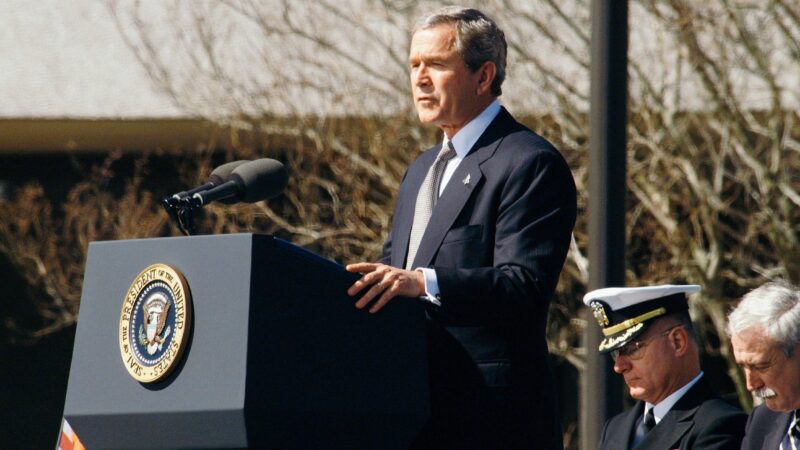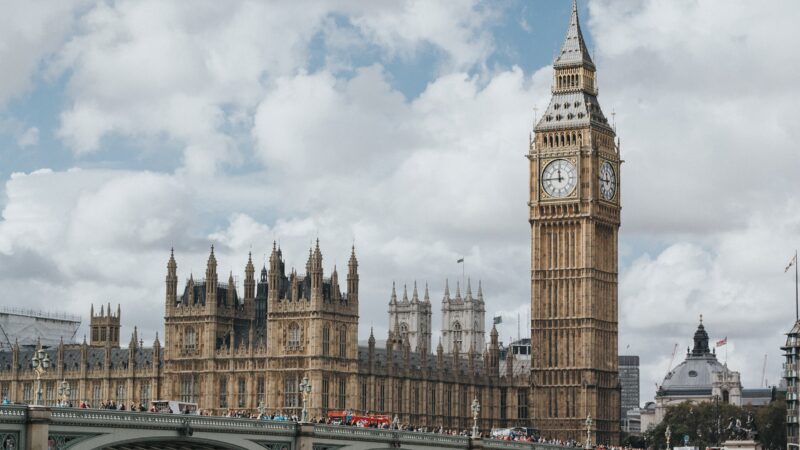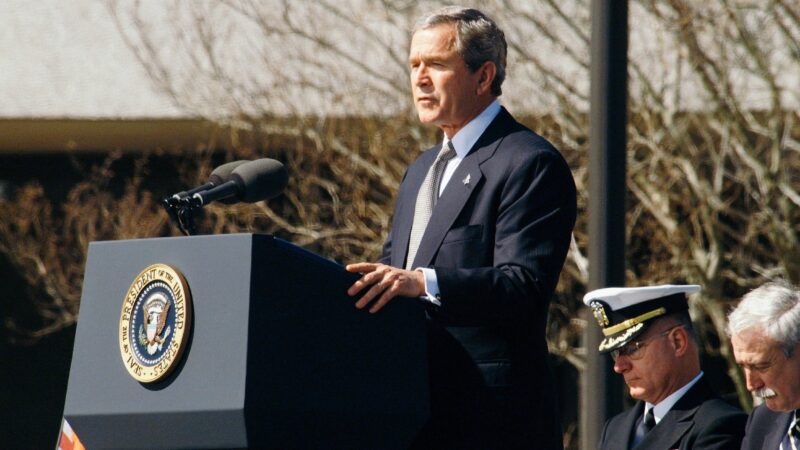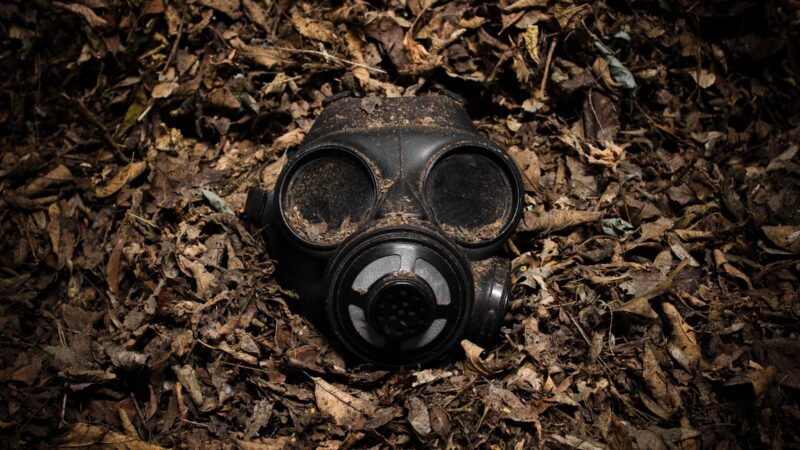Oligarchic Oafs
British cultural critics, in my opinion, suffer from an insularity which prevents them from connecting the events of their own country to any wider patterns of civilisation. This is truest for those who are the most correct with their criticisms. Take for example Theodore Dalrymple, whose 1998 article Uncouth Chic in the City Journal was prophetic in diagnosing a distinctly British pathology. I give a lengthy quote to showcase the depth of his description:
“The signs — both large and small — of the reversal in the flow of aspiration are everywhere. Recently, a member of the royal family, a granddaughter of the queen, had a metal stud inserted into her tongue and proudly displayed it to the press. (…) Middle-class girls now consider it chic to sport a tattoo — another underclass fashion, as a visit to any British prison will swiftly establish. (…) Advertising now glamorizes the underclass way of life and its attitude toward the world. Stella Tennant, one of Britain’s most famous models and herself of aristocratic birth, has adopted almost as a trademark the stance and facial expression of general dumb hostility to everything and everybody that is characteristic of so many of my underclass patients.”
Dalrymple lays the blame for this “uncouth chic” on moral relativism: “… since nothing is better and nothing is worse, the worse is better because it is more demotic.” This much may be true, but it sidesteps an important matter. There’s an area where the British remain elitists: money. Whatever relativism now reigns upon our morality, it has areas of preferred emphasis. With manners we are relativists, but with cash we are a nation of absolutists who think being rich is better than being poor. Indeed, the very need to transform the uncouth into a type of chic (a word meaning sophisticated and fashionable) betrays such a mindset. Nobody is demanding unfashionable uncouth trash.
To be an elitist about your wallet and a vulgarian about your manners. I wager this combination isn’t accidental but vital. The latter flows from the former.
The Greek philosopher Aristotle, who defines a lot of things near-finally, defines an oligarch as someone who is both wealthy and has a wealth-based idea of goodness. That is, an oligarch isn’t just rich; he thinks being rich is identical with being good. This is why he thinks only the rich should hold political office, for example. So, it’s not that money is the root of all evil and the rich the wickedest. The one who has his character in order only benefits the more money he has, because he understands money as a tool for acquiring other goods. The oligarch grasps for money like an idolum and hates anybody who doesn’t have it.
But why does the oligarch think this? Hasn’t he observed all the good poor people in the world? Is he blind to the honest pauper? Aristotle’s answer is simple: the oligarch thinks money equals goodness because he thinks living well is gorging every appetite with no limit. “For where enjoyment consists in excess, men look for that skill that produces the excess that is enjoyed”[ii]. In other words, if the good of life is endless pleasure, and endless pleasure needs endless money to buy it, the good of life requires endless money. Those without money are unable to get endless pleasure, so the oligarch looks down on their lives as inferior.
The collection of norms we call “etiquette” or “manners” have emerged organically over a long period. Some are obviously arbitrary or meant to exclude people unjustly (the outmoded and snobbish dress code of “no brown in town” comes to mind). But a great many are there to limit personal behaviour, to channel action into a disciplined pattern.
Why chew with your mouth closed? Because it shows consideration for your fellow diners. Why take small bites? Because it controls you to eat at a healthy pace. Why not deliberately get drunk? To not impair your reason. Why avoid constant use of foul language? To show that your mind dwells on higher things than bodily functions. In all these there’s a standard of excellence, mental or physical, drilled into the person through control of their actions.
It’s a principle properly summarised in a line from Confucius: “Therefore the instructive and transforming power of ceremonies is subtle; they stop depravity before it has taken form, causing men daily to move towards what is good, and keep themselves farther apart from guilt, without being themselves conscious of it.”.
Is there then any reason for an oligarch to cultivate manners? I think none of weight. An oligarch might make a show of good manners, if he thinks this displays wealth. But once the cultural association of money with good manners is gone, he’ll stop this act. An oligarch who sees money as the means to swelling himself with pleasure actually has an incentive not to cultivate manners. Why would he cultivate something designed to limit his appetites? If the purpose of eating is to shovel as much food into your mouth as possible, and not to nourish yourself, then you can dispense with the cutlery, even possibly the plate.
But this leads to a further thought. Money for its own sake is necessarily vulgar because any constraint on it points to a standard other than pleasure. If we accept that the manners and etiquette we call aristocratic have developed over time as a way of disciplining wealth into excellence, then an oligarchy engorged on pleasure must reject them. Rather, manners that the underclass have adopted out of lack of correction or poverty now become the fascinations of the rich. A poor man wears ragged jeans because he can’t afford anything else. An oligarch wears designer torn jeans because money compels him to wear whatever he wants however he likes it. The expression of “general dumb hostility” which Dalrymple notes, may have been born from the Hobbesian nightmare of a slum; but for an oligarch, it’s the hostility of wealth to any external correction.
In an oligarchic society the top and bottom begin to resemble each other in customs even as they drift apart in income, and even as the top despises the bottom. We may explain the vulgarity of British elites in terms of class guilt, demoralisation, or political posturing. But the issue remains that love of gold doesn’t protect you from barbarism. It’s the passion that unites the highest emperor with the coarsest bandit.










The National Scandal That Never Was
In undoubtedly one of the most important and disturbing watches this year, the GB News documentary Grooming Gangs: Britain’s Shame is perhaps the best examination of this ongoing (and sadly ever-widening) scourge on Britain as a nation. The amount of detail and research Charlie Peters goes into is commendable, simultaneously making the matter horrifying and frustrating, given how little was done to tackle it up until the last decade.
It’s not simply the individual accounts of grooming victims that make it such an uncomfortable watch, nor the vast scale of the scandal that Peters exposes. Rather, it’s the clear institutional failings that occurred, as well as the Soviet-level attempted cover-up by the authorities, including intimidation campaigns against those trying to tell the truth.
It ends with an overall call to action for the government to take this matter more seriously and have more of those involved in the cover-up to be held to account.
Peters’ excellent work is one of several noticeable examples of mainstream culture attempting to shed some more light on the scandal, with others including the equally harrowing BAFTA-winning BBC drama Three Girls and an episode of the Denise Walsh true crime series Survivors where prominent victim Sammy Woodhouse gave an extensive interview on her own tragic story.
However, such contributions are noticeable in how few and far between they actually are. This, in turn, highlights a sinister truth about the scandal as a whole: despite how much of a major problem it was, and continues to be, it never quite gained the status of ‘national scandal’ it truly deserved.
The fact it hasn’t had such an impact is very troubling and should highlight how legitimately broken our current system is, politically and institutionally.
But before that, it’s worth examining a brief history of this scandal.
For several decades now, tens of thousands of young, mostly white girls, have been targeted in numerous towns and cities across the UK by gangs (generally of British Pakistani origin) for grooming, sex and rape.
Such girls would be coerced by various means – offers of drugs and alcohol, psychological manipulation, fake affection – by these gangs, and would later be abused.
Sometimes, those in positions of authority were also accused of engaging in such behaviour themselves, including Labour peer Lord Nazir Ahmed, who was (ironically enough) lauded for a speech condemning it.
To make matters much worse, such crimes were often ignored for decades by the authorities, from the local councils, to the police to the social services. It was later discovered that fears of being called ‘racist’ and ‘politically incorrect’ and ‘undermining community cohesion’ were given as justifications for to the ‘see no evil’ attitude of those in charge, because of the race dynamics of those involved (not least of which the victims themselves, often berated for being white by the preparators).
In a post-MacPherson Inquiry Britain (of which had questionably accused the Metropolitan Police of being ‘institutionally racist’ following their bungled investigation of Stephen Lawrence’s murder), fears around that sort of accusation lingered among many police forces – leading to the direct racist abuse of many white, Sikh and Hindu girls in the process.
Later on, Dan Hodges described those failed in Rotherham as those failed because of crying ‘racism’, as “[Rotherham Council] were standing back because the victims were white and the rapists were not.”
The scandal would remain an open secret for many years, whether it be the working-class mumbling in hushed tones about it or less-than-palatable political alternatives captalising on the problem to gain local support.
This would change in 2012 when Times journalist Andrew Norfolk blew the whistle, following extensive research and corroboration with the likes of Woodhouse. This, alongside further exposure in other areas of the country, brave individuals like Maggie Oliver openly highlighted the matter, further helping it into the mainstream.
How extensive this was and how far back this goes will probably never be known. In terms of time alone, there is much circumstantial evidence. The Sunday Mirror found that the Telford abuse goes back as far as the late 1970s and early 1980s. A Rotherham Advertiser article documented such abuse as far back as 1975. A memoir titled Call The Midwife dates the scandal even further back to 1950s London. During a 2021 Parliamentary debate on grooming, Rotherham’s Labour MP Sarah Champion noted that she had met victims who were 70 years old.
To make matters even bleaker, it seems that there are further revelations still to unfold – as one of the lawyers who helped to prosecute the Telford gangs stated, such matters in the town were simply the ‘tip of the iceberg’ for what was to come.
So if all of this is true, then why is it a scandal that has (once again) gone under the radar, kept on the down-low and sidelined to ‘dissident right’ Telegram chats?
There are several reasons for this, and none of them are good, shockingly enough.
Firstly, the ‘racism’ and ‘far-right’ stings and smears that made many turn away initially are still prevalent when discussing this stuff. Norfolk himself was worried about investigating the story initially when first hearing of it, stating in 2015 that his ‘liberal angst’ about the issue being a ‘dream story for the far-right’ made him nervous about tackling it.
Although such worries were somewhat justified, his reporting was originally dismissed by Rotherham Council as lies of the ‘[Rupert] Murdoch press’. Needless to say, if such concerns could make the likes of Norfolk (a hero in this story by all counts) nervous to start with, then why would anyone else senior want that to be their hill that they died on?
In 2015, when Nigel Farage as UKIP leader travelled to Rotherham to speak on the issue, there was a significant protest – but it wasn’t the gangs they had in their crosshairs. Instead, much hatred was directed against Farage for in part spreading ‘racism’.
Champion herself when calling out these problems in her constituency area in a hard-hitting 2017 Sun article received similar attacks. Beyond the death threats and deselection attempts, she was also criticized for being racist by MP Naz Shah (infamous for retweeting a parody account stating that the grooming victims should ‘shut their mouths for the good of diversity’) and her local Labour Party.
Meanwhile, Peters’ doc itself was targeted on similar grounds with University College London professor Ella Cockbain sending a complaint to Ofcom on the matter, as it promoted ‘racist tropes’ about ‘Pakistani men’ (thankfully to widespread backlash online as a result).
In short, if far-left campaign groups, certain trade unions, much of the Labour Party and academics among many others with ‘privileged’ status are still willing to shut down this debate with racism smears, why would those with much to lose campaign against it?
This highlights the second major reason as to why this never became a national scandal: it didn’t serve the interests of the political establishment at large (not least of which those involved in the original cover up, alongside specific councillors who made horrid remarks on it).
Writer Derek Turner once described political correctness as a ‘clown with a knife’, highlighting its funny aspects of which conceal its sinister totalitarian aims. The grooming gang scandal, alongside the infrequent spats of Islamic terrorism, are the most obvious times of such an idea playing out in such a fashion.
When the political establishment has their eggs in the baskets of political correctness, multiculturalism and mass immigration – policies and ideas of which the proliferation of grooming gangs couldn’t have happened without – why would they seriously want to tackle such a subject matter head on and deal with it?
Instead, they focus on supposed scandals that confirm their prejudices. When the grooming gang scandal was taking off in the mid-2010s, a completely made-up non-scandal was entertaining the eyes and ears of Westminster – that of the VIP pedophile ring alleged by fantasist Carl Beech. Senior MPs gave it Parliamentary space, LBC host James O’Brien gave it copious amounts of attention and many at the Met Police felt that Beech (under his pseudonym ‘Nick’) was ‘credible’. It went as far as then-Prime Minister David Cameron getting involved, with Douglas Murray describing how it created a ‘witch-hunt’ atmosphere in Parliament. Beech was found out later to be a fraud – sadly not before some were made homeless because of his claims and others died before their vindication.
It is easy to see why much of the Westminster bubble was so eager to give it attention, but not the grooming gangs. The Beech affair targeted the old British establishment they despised for their part in a traditional Britain ‘out-of-sync’ with the secular one of the current year they love (and have benefited greatly from).
Persecuting World War 2 generals like Lord Bramall and former MI5 heads, alongside the Tory old guard of Edward Heath and Harvey Proctor was very easy under this mentality. When the crimes and suspects involved violate the principles of secular Britain that becomes much harder to do.
As such, it isn’t surprising that the grooming gang scandal isn’t much use for the establishment at large. This is something blatantly seen with the generally scant media coverage it receives in comparison to other tragedies.
In Manufacturing Consent, Edward S. Herman and Noam Chomsky highlight the various ways in which the media manipulate events and frame stories in a way to set an agenda. This includes the notion of ‘Worthy and Unworthy Victims’, whereby the media will ‘portray people abused in enemy states as worthy victims, whereas those treated with equal and greater severity by their own government… as unworthy.’
Such an idea can be recontextualised in regards to how the media at large covers certain bleak stories, whether in Britain or abroad. For instance, the Grenfell Tower fire in 2017 was given much coverage in the half-decade since the disaster, and rightly so. One would hope this extended to the ramifications of such an event. It was, but not in the way one would think.
Instead of talk surrounding corporate negligence and the neo-feudal implications of the inherent setup, the discussions surrounding Grenfell consisted of how the government had failed the seemingly benevolent ideas of multiculturalism and diversity due to the building’s high-foreign born population, all the while blaming the Tories’ austerity supposedly causing the matter to occur (a blame shared by more than just one political party, it turned out).
In all, brave firemen were more likely to be criticised for the incident than those who built it in such poor conditions, despite endless complaints from the residents about it. Grenfell could therefore be cynically pushed in a way that celebrated diversity and mass immigration, making its victims worthy ones. The grooming gang scandal meanwhile does the complete opposite, hence its victims are unworthy, for the reasons explained earlier. Hence why there was a Question Time episode set in Kensington for the Grenfell anniversary, but none for the grooming gang hotspots.
One can only then, in response, protest. Why can’t we all share in these tragedies together? Why does politicking and ideology have any part of such quandaries? Can we not move beyond politics, sacred cows and petty point scoring to grieve, share anger and unite in such times of darkness? Unfortunately it seems that no, we cannot.
It is for that reason, alongside not being recognised as a national scandal, that in some areas, the problem has only worsened since its exposure a decade ago – not least of which is the fact that Rotherham is still a hotspot for this very crime.
The liberal-left establishment have at best sought to further minimize and downplay it, and at worst once again outright deny it’s a problem. In a particularly blunt instance of anarcho-tyranny in late 2022, one victim (Samantha Smith) was investigated by West Mercia Police for discussing her abuse on GB News.
This vapid ignorance was no better displayed than the reaction by polite society to the 2020 whitewashed Home Office report into the matter. The vested interests wanting the story to go away treated it like gospel, including one Guardian writer who exclaimed that it ‘dispel[ed] myth of ‘Asian grooming gangs’ popularised by far right’.
The fact that some of its contributors were displeased at the report and it left out several key witnesses (like initial whistleblower former Labour MP Ann Cryer and the Quilliam Foundation) didn’t matter. Meanwhile, the recent exposure of the fakery of Eleanor Williams was certainly given far more coverage than something like Telford.
Such attitudes permeate other high places as well from so-called ‘comedians’ who try to make disgusting light of it as well as former respected journalists playing ‘whataboutism’ when confronted with the issue. Other institutions, like the BBC will conduct hit pieces against you if you highlight the matter further.
However, despite all this, there is reason to be hopeful.
Although not treated with the severity it deserves, the matter is at least public knowledge now, and can be dealt with accordingly. The 2017 arrests in Newcastle that were pre-emptive against such gangs (alongside many others in recent years) shows that the police in some areas are getting mildly better at catching the perpetrators of these despicable acts.
Meanwhile, the fact that some high-profile Tories, such as Rishi Sunak and Suella Braverman, have made political hay of it in recent campaign and conference speeches is a positive sign – at the very least, it shows how much of a concern it is to many of their voters and the British right in general, even if one may argue its all cynical electoral-politicking.
Similar political concern could be fully seen in the 2021 Parliamentary debate on the matter, where there was clear cross-party support and sympathy to the victims and their plight, indicating the determination of some of them to want to do something to stop this from occurring again. There is circumstantial good news also such as the Rochdale 3 being possibly deported.
Such steps may be in the right direction, but more needs to be done.
The government needs to apologise to all of the victims and whistleblowers it let down, akin to David Cameron’s apology for Bloody Sunday following the Saville Inquiry.
Then, some genuine action needs to take place from the ground up. As Peters’ noted during the documentary, the National Crime Agency needs to do a complete investigation into the matter, especially in highlighting particular areas uncovered as of yet. Genuine accountability against those involved is also required – the groomers themselves should be deported if foreign-born, and if the death penalty can be re-institutionalised, it should be used against those we can’t deport.
Those in local government that were complicit in the cover-up should be removed from their positions, either by the ballot box or other means for officials and some should be imprisoned for perverting the course of justice.
This could all be done. The only thing stopping it is the cowardly Westminster consensus who instead of challenging such problems head-on would prefer to avoid, as Dominic Cummings stated, “awkward dinner party chats in London.”
It cannot be stressed enough that only the victims of this evil could deal with something that slight. Instead, they have their lives turned upside down, and in some cases ruined.
Rudyard Kipling once wrote about the Boer War that, “We have forty million reasons for failure, but not a single excuse.” The sooner we appreciate that sentiment with the grooming gang problem and tackle it in a serious way, the better we’ll be as a nation.
In the leadup to the GB News documentary, writer Ed West wrote that “There should be a national conversation about it in the way there was after the Lawrence inquiry.”
The time for that ‘conversation’ is now. While the suffering of the victims can not be reversed, we can at least stop such horrors from continuing, not only showing that Britain truly listened to those people, but that it will leave future generations better off as a result.
Photo Credit.